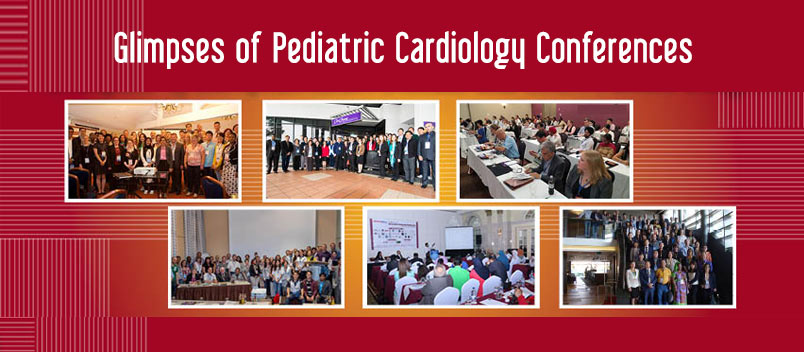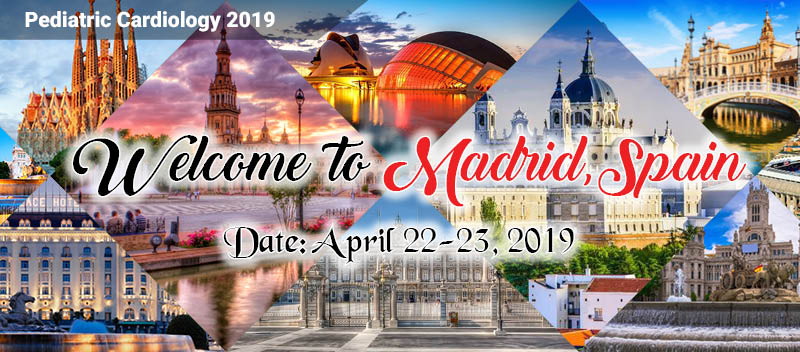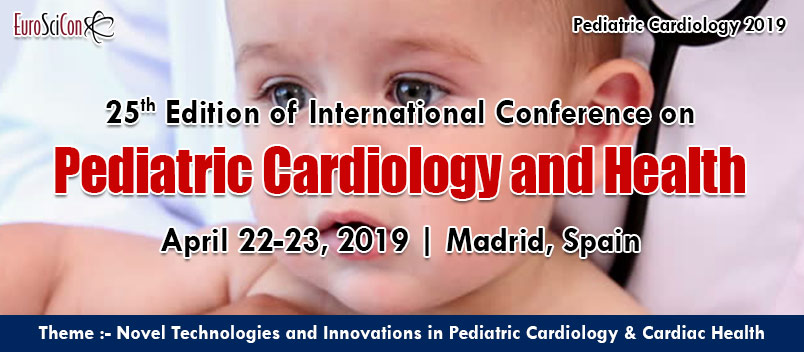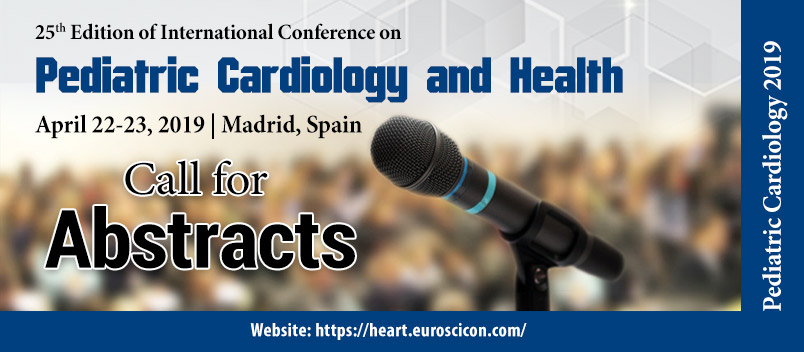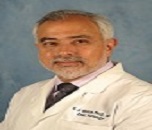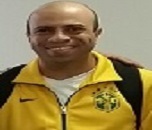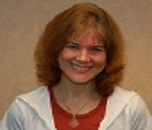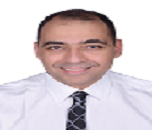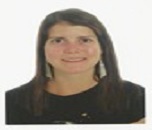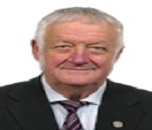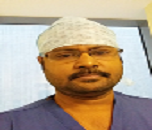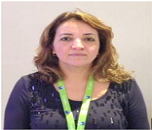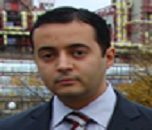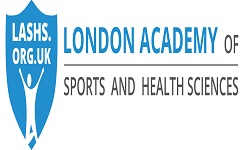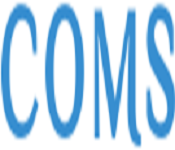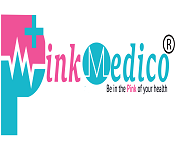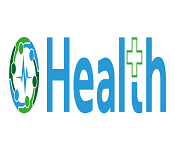Pediatric Cardiology 2019
About Conference
Euroscicon Ltd likes to take this opportunity to welcome all of you to “25th Edition of International Conference on Pediatric Cardiology and Health” which is to be held during April 22-23, 2019 at Madrid, Spain. Through our theme “Novel Technologies and Innovations in Pediatric Cardiology & Cardiac Health”, the conference will analyze the recent advancements and new modes that can be enforced to the research and advancement to take Pediatric cardiology treatment, one step further.
Pediatric Cardiology 2019 will impact an attractive moment to meet researchers in the research field and therefore it takes delight in opening a gate to meet the ability in the field, young researchers and potential speakers. The conference also includes essential topics on: Pediatric Cardiology, Clinical Pediatrics, Cardiovascular Diseases, Fetal Cardiology, Pediatric Dermatology, Pediatric Endocrinology, Pediatric Allergy, Pediatric Psychiatry, Pediatric Neurology, Pediatric Oncology, Pediatric Eisenmenger Syndrome, Neonatology, Pediatric Heart Catheterization, Pediatric Nutrition, Pediatric Heart Surgery, Pediatric Heart Transplantation, Coronary Heart Diseases, Interventional Cardiology, Pediatric Pulmonology, Pediatric Dentistry, Tetralogy Of Fallot In Infants, Pediatric Congenital Heart Disease, Child Anesthesia For Cardiac Surgery, Pediatric Atherosclerosis, Research In Pediatric Cardiology, Pediatric Ophthalmology, Future Diagnostic Strategies - Pediatric
This conference will give a complete upgrade on all electrophysiological, therapeutic, surgical and interventional points in cardiology. Connoisseur with universal and national notorieties in different cardio sub-classes will address the most recent guideline; rehearse examples and arrangements in the cardiovascular drug. Also, participants will find out about late trials being polished that are prone to impact future practices. Intuitive sessions will incorporate discourse of current contentions in clinical practice. The aviary of cardiology will be secured include imaging, heart disappointment, coronary illness, arrhythmias, avoidance, and general cardiology, pediatric cardiology, cardiovascular surgery, and various interventional cardiology.
With proceeding with advances in every aspect of the cardiovascular drug, there is a need to redesign general and sub-expert pediatricians, cardiologists on the best in class, quickly advancing improvements in the field. An endless supply of this course, members ought to have an expanded comprehension of changes and by principles and late clinical progressions in the cardiovascular drug. An extra goal of this meeting is to give down to earth information and tips to enhance the act of cardiology. This congregation will profit all levels of cardiology professionals, including teachers, medical caretakers, specialists, Ph.D. researchers, and all other experts.
Pediatric Cardiology 2019 invites all interested participants to join us for this venerate event at the impeccable destination Madrid, Spain.
Sessions /Tracks
Track 1: Pediatric Cardiology
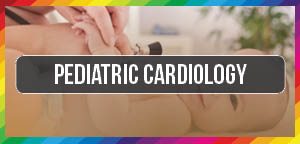
In childhood, a disorder which involves both the heart and lungs problems, called Pediatric Cardiopulmonary disease. Epicardial adipose tissue (EAT) is the visceral fat deposit over the heart and is often increased in obese subjects. EAT is connected to Cardio Metabolic risk factors and non-alcoholic fatty liver disease (NAFLD) in adults, but this relationship is not well known in children. (MI) Myocardial infarction is rare in childhood and adolescence. Children usually have either an acute inflammatory condition of the coronary arteries diseases or an anomalous origin of the left coronary artery (LCA). Peripheral vascular diseases are circulation ailment that affect blood vessels inside the heart and brain. In PVDs, blood vessels are narrowed. Narrowing is generally caused by arteriosclerosis. The discussion about the widespread problem of the baby heart diseases as Myocarditis, Hypertension, Cardiomyopathy, Heart Murmur, Hypoplastic Left Heart Syndrome, Pericarditis Effusion, Cardiac Arrest, Arrhythmogenic Right Ventricular Dysplasia, Cyanotic Heart Disease, and Pediatric Arrhythmia.
- Apnea
- Baby Heart Diseases
- Cardiomyopathy
- Heart Murmur
- Hypertension
- Hypoplastic Left Heart Syndrome
- Myocarditis
- Pediatric Arrhythmia
- Pericarditis Effusion
Track 2: Clinical Pediatrics
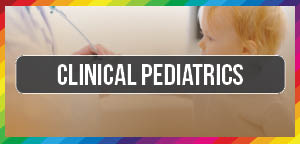
Clinical Pediatrics is a restorative diary that take after to distribute and to accessible data on a change of tyke focus mind points alongside those of a clinical, logical, behavioural, instructive, or moral nature. Clinical Pediatrics sensitivity is likewise a standout amongst the most imperative and generally considered territories in novel research of this field. Introductory discovery of growth in youngsters likewise is taking prior consideration in Clinical Pediatrics disease.
- Abnormalities in Children
- Birth Defects
- Pediatric Disorders
- Pediatric obesity
- Pediatrics
Track 3: Cardiovascular Diseases
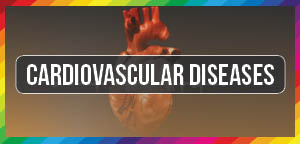
Cardiovascular Diseases are type of heart disease which is commonly seen in children and adolescents. Rheumatic heart diseases are thought to result from an autoimmune reply, but the exact pathogenesis remains unclear. Cardiovascular include more about the acute coronary syndromes, Congestive Heart Failure, inflammatory heart diseases, Pediatric angina pectoris, ischaemic heart diseases, rheumatic heart diseases, valvular heart diseases, peripheral artery diseases, pulmonary embolism and vascular rings.
- Heart Failure
- Acute Coronary Syndromes
- Inflammatory Heart Disease
- Ischaemic Heart Disease
- Pediatric Angina
- Peripheral Artery Diseases
- Pulmonary Embolism
- Rheumatic Heart Disease
- Valvular Heart Diseases
- Vascular Rings
Track 4: Fetal Cardiology
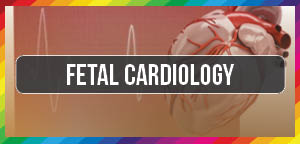
The heart is the primary organ to create in your unborn infant and is the most imperative to his or her lifetime of wellbeing. Fetal Cardiology program attempts to bolster kid's heart wellbeing or setting up your tyke forever evolving treatment. The most progressive innovation to screen creating child-including fetal echocardiograms and fetal MRIs for assessment which decreases hazard while minimizing time spent in the doctor's facility. Our gathering will give you more subtle elements data about fetal cardiovascular physiology, Fetal Bradyarrhythmia's and Tachyarrhythmia's and some more.
- Administration of Pregnancy
- Fetal Bradyarrhythmia's
- Fetal Cardiac Intervention
- Fetal Cardiovascular Physiology
- Fetal Tachyarrhythmia's
- Irregularities of Venous System
- Transesophageal Echo, Fetal Echo
Track 5: Pediatric Dermatology
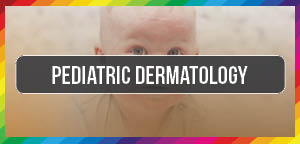
Pediatric dermatology is an exciting area of medicine. When children are young, they cannot give a history. In fact, pediatrics are said to be much like veterinary medicine. The practitioner should use sharp empirical skills to assess a problem. For instance, instead of asking a one year old if they scratch or if a rash itch, merely observing the child scratching or seeing excoriations on the skin will lead a physician to the right conclusion. Thus, looking for clues further sharpens one’s visual skills.
- Acne
- Vitiligo
- Psoriasis
- Pediatric Atopic Dermatitis
- Current Issues in Pediatric Dermatology
Track 6: Pediatric Endocrinology
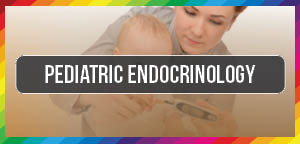
Pediatric Endocrinology is concerned with a wide array of disorders related to the hormones and endocrine systems like variations of physical growth and sexual development in childhood, diabetes and many more. Endocrine emergencies represent a bunch of potentially life-threatening conditions that are often unnoted, leading to delay in each diagnosis and treatment, factors that further contribute to their already high associated mortality rates. As such, the true incidence of primary endocrine emergencies is not well outlined, which is likely because the disease process is commonly not recognized. If these endocrine disorders do not seem to be identified or if specific treatment is delayed, vital complications or even death may occur. Examples include diabetes, thyroid issues, blood glucose problems, enhanced or delayed growth, adrenal or pituitary gland dysfunction, and ovarian or testicular disorders. Many Pediatric endocrinologists have interests and expertise in bone metabolism, lipid metabolism, adolescent age, Pediatric endocrinologists, depending upon the age range of the patients they treat, care for patients from infancy to late adolescence and young adulthood.
- Type 1 diabetes
- Growth Hormone Treatment
- Hypoglycemia
- Hypothyroidism
- Hyperthyroidism
- Inborn Errors of Metabolism
- Pseudohypoparathyroidism
- Diabetic Ketoacidosis
- Adrenal Insufficiency
- Turner Syndrome
Track 7: Pediatric Allergy
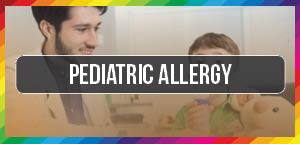
Allergies in children are those causes pathophysiology, treatments, management, practices and management of allergies that develop in them. 40 percent of children suffer from hay fever. Children are more probable to develop allergies if one or both parents have allergies. Allergies fluctuate between grown-ups and children. Explanation for this is that the respiratory system in kids is smaller. The bronchi and bronchioles are narrower therefore even a small decrease in diameter of those airways will have profound consequences. Your child’s immune system fights infections. If your child has allergies, his/her immune system incorrectly reacts to things that are harmless. Pet dander, pollen, dust, mild spores, insect stings, food, and medications are examples of such things. Additionally, children frequently 'outgrow' their allergies. The incidence of childhood allergies has increased within the past 50 years.
- Skin rashes or hives (atopic dermatitis or eczema)
- Difficulty breathing (asthma)
- Sneezing, Coughing, Runny Nose or Itchy Eyes
- Stomach Upset
- Allergic Rhinitis (Hay Fever)
- Nasal Congestion
- Ear Infections
- Food Allergies
Track 8: Pediatric Psychiatry
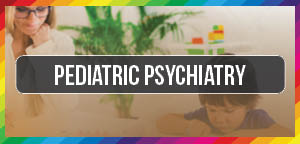
Pediatric Psychiatry Pediatrics is concerned to determine if a child has any learning, developmental, or behavioral problems. They can upkeep with several issues including learning and attention disorders and delayed development in speech, motor skills, and thinking ability and other habit disorders. Developmental-behavioral Pediatricians are similar, but not the same as child psychiatrists.
- Epilepsy
- Neurocritical care
- Behavioural pediatrics
- pediatric neuro-oncology
- learning disorders
- Developmental disorders
- Delayed development
- Attention disorders
Track 9: Pediatric Neurology
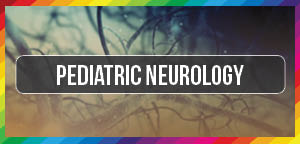
Researchers are engaged in a variety of laboratory and clinical research programs to extend their understanding of the developing nervous system and pathologic processes that underlie neurological disorders in children. Approximately 70% of children who suffer epilepsy during their childhood eventually outgrow it. Magnetic resonance spectroscopy (MRS) is a diagnostic tool used for inherited metabolic disorders. To date, MRS has been limited to the assessment for cerebral lactic acidosis in mitochondrial disorders in children. Neuromuscular and genetic metabolic diseases are the most common genetic related disorders in children. The new frontier to improve outcomes in critically ill pediatric patients with neurological illness is Pediatric Neurocritical Care.
- Neuromuscular Disorders
- Pediatric Neuropsychology
- Neuropathic Pain
- Neuropharmacology
- Neurodegenerative Diseases
- Neuro-Degenerative Disorders and Stroke
- Neuro Therapeutics, Diagnostics and Case Studies
Track 10: Pediatric Oncology
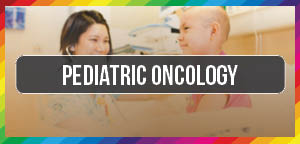
Pediatric oncology is the branch of medicine based on the diagnosis and treatment of cancer in children. oncology is concerned with the children who have cancer, such as leukemia, brain tumors and osteosarcoma. It involves diagnosis and treatment of children with various blood disorders, such as hemophilia, neutropenia and anemia. Pediatric hematologists work with children who have blood, bleeding and clotting disorders and diseases. Examples vary widely and range from most common and pernicious anemia to hemophilia and sickle cell disease.
- Childhood cancers
- Leukemias
- Brain tumors
- Lymphomas
- Radiology
- Advancing our understanding of Neuroblastoma
Track 11: Pediatric Eisenmenger Syndrome
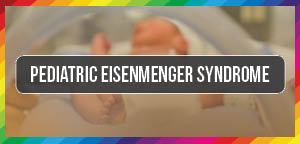
This syndrome may affect adolescents and adults with certain congenital heart defects that were repaired later in life or were never repaired. Though this Pediatric Eisenmenger’s not a type of heart disease specifically, this syndrome typically indicates a problem with the heart. It is a collection of three symptoms, including: cyanosis, due to decreased oxygen in the blood pulmonary. Hypertension, high blood pressure in the blood vessels of the lungs and Polycythaemia, excess number of red blood cells.
- Hypoxia
- Patent ductus arteriosus
- Pulmonary hypertension
- Transposition of the great arteries
- Ventricular septal defect
Track 12: Neonatology
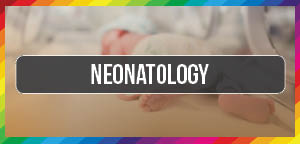
Neonatology focuses on new-born infants, particularly ill or premature new-borns. If a child has a birth defect or is born prematurely, a neonatologist will assist with delivery and the care of the infant. If a problem is discovered before the baby is born, the neonatologist will consult with the patient’s obstetrician during the pregnancy. Neonatologists can address complex and high-risk situations that a general pediatrician may not be well equipped to handle. They can also identify infections, or breathing conditions, treat new-borns for any kind of life-threatening illness, and coordinate the care of new-borns to make sure they receive proper nutrition for healing and growth.
- New born nursery
- Neonatal intensive care unit
- Hyperbilirubinemia
- Neonatal conjunctivitis
- Neonatal respiratory distress syndrome
- Neonatal tetanus
- Neonatal bowel obstruction
- Neonatal diabetes mellitus
- Alloimmune thrombocytopenia
- Neonatal meningitis
Track 13: Pediatric Heart Catheterization
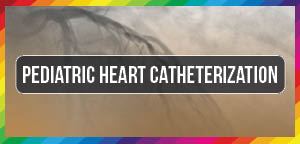
Cardiac catheterization of infants and children is an extremely-specialized methodology, which is performed in selected circumstances for additional diagnostic information. In addition, an increasing number of cardiac catheterization procedures are therapeutic and permanently correct or improve the underlying congenital heart condition, avoiding the need for open-chest surgery. Electrophysiological catheterization procedures allow detailed investigation of heart rhythm abnormalities, and ablation procedures cure certain abnormal heart rhythms. Cardiac catheterization is what is also known as an invasive procedure, meaning it involves going into the body through the skin. Though, it is a minimally invasive procedure and is not considered "open" surgery since it's performed without making any large incisions. Usually the only sign that a person has had the process is a small puncture hole where the catheter was inserted, generally in the groin area, but sometimes in the arm or neck.
- Balloon Atrial Septostomy
- Blade Atrial Septostomy
- Cardiac Conventional Surgery
- Minimally Invasive Procedure
- Pediatric Therapeutic Cardiac Catheterization
- Static Balloon Atrial Dilation
- Therapeutic Catheter Procedures
Track 14: Pediatric Nutrition

Pediatric Nutrition refers to the dietary requirements of newborns and infants. A diet consists of all the essential nutrients and the adequate calorie intake necessary to indorse correct growth and sustain the physiological necessities at the assorted stages of a child’s development. Nutritional needs vary considerably with age, level of activity, and environmental conditions and they are directly related to the rate of growth. The weight control management plans rely upon the basic nutrition categories with contemplations of the Recommended Dietary Allowances (RDA) for age. Throughout the infant stage the need for calories is greater than any postnatal stage due to swift increase in both height and weight. Altogether, the normal child develops 55% of energy on metabolic conservation, 25% on movement, 12% growth, and 8% on excretion. The age of the kid will decide consistency and portion of sustenance’s to be consumed.
- Infant Nutrition
- Nutritional Toxicology
- Nutritional Immunology
- Nutrition in Pregnancy and Lactation
- Developmental Disabilities
- Food Science & Chemistry
Track 15: Pediatric Heart Surgery
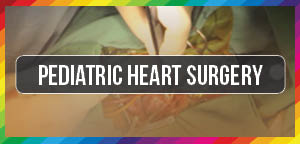
Heart surgery is done to correct problems with the heart. After the medical approach or for the severe conditions cardiac surgery is the option to treat the cardiac diseases. Anaesthesiologist’s involvement for diagnostic and interventional procedures in cardiac catheterization laboratory has been evolving particularly since last two decades. Sedation and Anaesthesia is requiring to unconscious the patient to precede the cardiac surgery. Cardiac surgical process includes various terms as cardiovascular surgery is surgery on the heart or great vessels performed by cardiac surgeons, Open heart surgery in the chest is cut open and surgery is performed on the muscles, valves, or arteries of the heart and Implantable Cardioverter Defibrillator (ICD) which is useful in preventing sudden death in patients with known, sustained ventricular tachycardia or atrial fibrillation. After the certain time the cardiac surgery, monitoring and the evolution is also important.
This tracks mainly discuss about the various surgical procedure are used to treat the cardiac problems as heart transplantation, modern beating heart surgery, neonatal heart surgery, ventricular septal defects surgery, rehabilitation and secondary prevention in cardiology, Pediatric cardiac emergency, transmyocardial revascularization (TMR), cardiac atherectomy, cardiovascular implant devices as well as patent ductus arteriosus and laparoscopy and the modern advancements in the surgical procedure.
- Heart Ablation Surgery
- Cardiovascular Implant Devices
- Heart Stunt Surgery
- Implantable Cardioverter Defibrillator (ICD)
- Minimally Invasive Heart Surgery
- Neonatal Heart Surgery
- Open Heart Surgery
- Robotic Heart Surgery
- Transmyocardial Revascularization (TMR)
- Ventricular Septal Defects Surgery
- Ventricular Septal Defects Surgery
Track 16: Pediatric Heart Transplantation
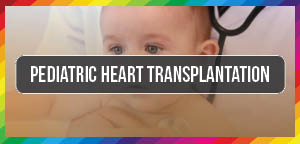
A heart transplant is a surgical procedure performed to remove the diseased heart from a patient and replace it with a healthy one from an organ donor. In order to remove the heart from the donor, two or more doctors must declare the donor brain-dead. Before a person can be put on a waiting list for a heart transplant, a doctor makes the determination that this is the best treatment option available for the person's heart failure. The most common reason is that one or both ventricles aren't functioning properly, and severe heart failure is present. Ventricular failure can happen in many forms of congenital heart disease but is more common in congenital defects with a single ventricle or if long-standing valve obstruction or leakage has led to irreversible heart failure. While a heart transplant is a major operation, your chance of survival is good, with appropriate follow-up care.
- Cardiopulmonary Transplant
- Complications after Transplantation
- Heart Transplant
- Heart Transplant Surgery
- Heterotopic Heart Transplant
- Pre-Transplant Assessment
Track 17: Coronary Heart Diseases
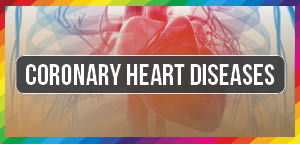
Coronary heart disease (CHD) is a disease in which a waxy substance called plaque (plak) builds up inside the coronary arteries. These arteries supply oxygen-rich blood to your heart muscle. When plaque builds up in the arteries, the condition is called atherosclerosis. The build-up of plaque occurs over many years. If blood flow is not proper to the heart muscle, then it is call Angina. Hypoplastic left heart syndrome is a complex and rare heart defect present at birth (congenital). Over time, CHD can weaken the heart muscle and lead to heart failure and arrhythmias. CHD is the most common type of heart disease.
Main type of heart coronary diseases are atrial septal defect, Cineangiography, ventricular septal defect, Coarctation of the aorta, transposition of the great arteries, tetralogy of Fallot, acquired heart diseases, aortic dissection, myocardial infarction, pleural effusion, Endocarditis, Atrial Fibrillation and atherosclerosis. About the sudden cardiac death (SCD) is the unexpected death caused by loss of heart function or cardiac stroke.
- Aortic Dissection
- Acquired Heart Diseases
- Atherosclerosis
- Atrial Septal Defect
- Cardiac Thrombosis and Pulmonary Embolism
- Coarctation of the Aorta
- Myocardial Infarction
- Pleural Effusion
- Sudden Cardiac Death
- Tetralogy of Fallot
- Transposition of the Great Arteries
- Ventricular Septal Defect
Track 18: Interventional Cardiology
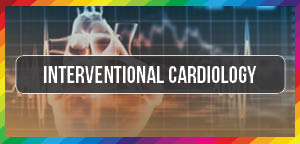
Interventional cardiology refers to diagnostics and non-surgical treatments of the heart. Cardiac interventions are used to diagnosis and treat many types of heart disease. Stanford interventional cardiology is a world leader in percutaneous coronary revascularization, which re-establishes blood flow to the heart when its vessels have been damaged or blocked. Each year, the staff of the Section of Invasive and Interventional Cardiology sees thousands of patients with almost every kind of heart disease. Our interventionists treat people of all ages from around the world who have serious, sometimes life-threatening, cardiac conditions.
- Cardiac Angioplasty
- Cardiac Atherectomy
- Carotid Stenting
- Embolic Protection
- Enhanced External Counterpulsation (EECP)
- Intravascular Ultrasound
- Invasive Cardiology
- Nonsurgical Interventional Treatments
- Percutaneous Mitral Valve Repair
Track 19: Pediatric Pulmonology

Pulmonology is a medical skill that deals with diseases involving the respiratory tract. It is known as chest medicine and respiratory medicine in some countries and areas. Pulmonologists are specially trained in diseases, conditions of the chest, emphysema, tuberculosis, particularly pneumonia, asthma and complicated chest infections. Pulmonology often involves managing patients who need life support and mechanical ventilation.
- Asthma
- Bronchitis
- Bronchopulmonary Diseases
- Cystic Fibrosis
- Lung Transplantation
- Pneumonia
- Tuberculosis
- Wheezing
Track 20: Pediatric Dentistry
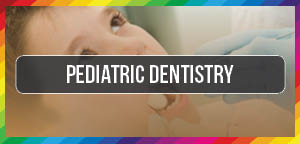
It is that the branch of dentistry dealing with children from birth through adolescence. Pediatric dentists promote the dental health of children as well as serve as academic resources for parents. A dental visit ought to occur within six months after the presence of the first tooth or by a child's first birthday. This is because early oral examination aids in the detection of the initial stages of tooth decay. Early detection is important to keep up the oral health, modify aberrant habits, and treat as needed and as simply as possible. Pediatric dentists provide care, conduct analysis, and teach in a diversity of clinical and institutional settings, also as private practice and public health. They work in coordination with alternative health care providers and members of social disciplines for the advantage of children.
- Tooth Decay
- Sensitive Teeth
- Bad Breath
- Grinding
- Thumb-sucking
- Gum Disease
- Canker Sores
- Over-Retained Primary (baby) Teeth
- Orthodontic Problems
- Dental Anxiety
Track 21: Tetralogy of Fallot In Infants
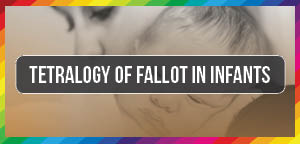
Tetralogy of Fallot is a birth defect that affects normal blood flow through the heart. It happens when a baby’s heart does not form correctly as the baby grows and develops in the mother’s womb during pregnancy. During pregnancy, there are screening tests (also called prenatal tests) to check for birth defects and other conditions. Tetralogy of Fallot might be seen during an ultrasound (which creates pictures of the body). Some findings from the ultrasound may make the health care provider suspect a baby may have tetralogy of Fallot. If so, the health care provider can request a fetal echocardiogram to confirm the diagnosis. A fetal echocardiogram is an ultrasound of the heart of the fetus. This test can show problems with the structure of the heart and how the heart is working with this defect.
Causes and Risk Factors
The causes of heart defects (such as tetralogy of Fallot) among most babies are unknown. Some babies have heart defects because of changes in their genes or chromosomes. Heart defects such as tetralogy of Fallot also are thought to be caused by a combination of genes and other risk factors, such as the things the mother or fetus encounter in the environment or what the mother eats or drinks or the medicines she uses.
- Blue Baby.
- Critical Congenital Heart Defect.
- Main Pulmonary Artery.
- Ventricular Septal Defect.
Track 22: Pediatric Congenital Heart Disease
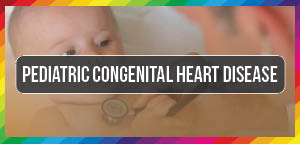
An inborn issue otherwise called an innate illness, distortion, birth deformity, or inconsistency, is a condition existing at or before birth paying little heed to bring about. Of these scatters, those portrayed by basic distortions are named "intrinsic peculiarities" and include absconds in a creating baby. Birth surrenders fluctuate generally in cause and side effects. Some intrinsic heart deserts in kids are straightforward and needn't bother with treatment, for example, a little opening between heart chambers that closes all alone. Other intrinsic heart abandons in kids are more intricate and may require a few surgeries performed over a time of quite a long while. The reason for an inborn heart deformity is frequently unknown. Having a guardian with an innate heart imperfection is likewise a danger factor. A number of hereditary conditions are connected with heart absconds including Down disorder, Turner disorder, and Marfan syndrome. Congenital heart imperfections are isolated into two principle bunches:
1. cyanotic heart abandons
2. non-cyanotic heart deserts
- Atrial septal defects
- Ductus Ateriosus Tetralogy of Fallot
- ventricular septal defects
Track 23: Child Anesthesia For Cardiac Surgery
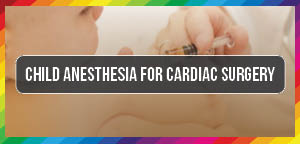
During the preoperative visit, a member of the Anesthesia team will discuss with the family and patient the use of preoperative medications. The decision regarding whether to administer a preoperative medication will depend on the age of the child, the type of cardiac defect and the anxiety level of the child.
The following are the main drugs mainly used for child
Morphine
Morphine is a narcotic that produces sedation and analgesia (blocking the sensation of pain). Morphine may be used as a premedication for certain types of congenital heart defects such as Tetralogy of Fallot or other cyanotic congenital heart diseases.
Atropine
Infants under 6 months of age and children with Down syndrome will sometimes receive a medication called atropine prior to Anesthesia. Atropine is known as an anticholinergic agent, which means it works on the nervous system to produce, among other things, dry mouth and increased heart rate.
Midazolam
Midazolam is the drug most commonly given before surgery. In some cases, morphine may also be used. Midazolam (or Versed®) is a short-acting benzodiazepine (sedative) that can be administered to children orally, intranasally or through an intravenous catheter (IV).
- Adequacy of Anticoagulation
- Distinct Cardiac Defect
- Inhalational Anesthetics
- Severe Aortic Stenosis.
Track 24: Pediatric Atherosclerosis
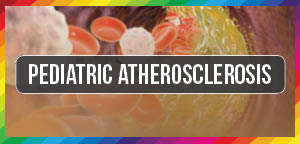
Pediatric Atherosclerosis begins in childhood with the presence of aortic fatty streaks. Aortic fatty streaks of some degree are there in practically all individuals from every human population that has been studied. The average sum of aortic intimai surface involved with fatty streaks does not differ much among human growths. Coronary fatty streaks begin to form in adolescence. It is abnormal for children or teenagers to have a heart attack or stroke because of atherosclerosis. Though, the process of atherosclerosis begins in childhood. Almost for all childrens, atherosclerosis is mild and progresses slowly. It is because of the vessel narrowing, caused by atherosclerosis, takes many years to develop. In few childrens, atherosclerosis is swiftly increasing the risk of heart disease, and less common, stroke in early adult life. This conversion takes place at earlier ages in populations with high mortality from coronary heart disease.
- Child Obesity
- Cholesterol-filled plaques
- Depressive and bipolar disorders
- High blood pressure
Track 25: Research in Pediatric Cardiology
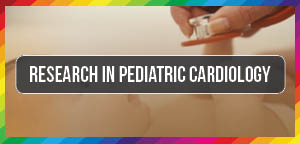
Research in Cardiology field comprises all aspects related to the physiology and pathology of the structure and function of the heart and the cardiovascular system, including their regulation by neuronal and humoral mechanisms, cardiovascular safety pharmacology etc. To see the drug effects on heart, scientists prefer to do clinical trials on the animals. Because of long term Malnutrition also cardiac disorder will develop in body. With the international Pediatric Cardiology 2016 Meetings or events we will get to know about the new advancements coming from different research in cardiology field.
This session mainly focusses on the research on cardiology filed as clinical monitoring, case studies, cardiovascular genetics, adverse drug reaction, clinical trial management system, and experimental models of cardiovascular diseases.
- Adverse Drug Reaction
- Cardiovascular Drugs Market Analysis
- Cardiovascular Genetics
- Clinical Monitoring
- Clinical Trial Management System
- Ethics Committee
- Experimental models of Cardiovascular Diseases
- Pediatric Cardiology Case Studies
Track 26: Pediatric Ophthalmology
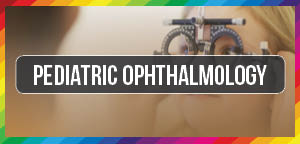
Pediatric Ophthalmology is that the branch of medicine involved with the care of Children’s eyes. Pediatric Amblyopia is an eye problem which emerges in kids can also be present in adults. The mechanism of this condition includes the differences of vision in both eyes i.e. the vision in one is weaker to compare to other. It is recommended to have regular vision screening of your child to avoid permanent vision damage. Ophthalmologists emphasis on the enhancement of the visual system and the several diseases that disturb visual development in children. They also have knowledge in dealing the various ocular diseases that affect children. They are skilled to perform complex eye surgery as well as to accomplish children's eye problems using glasses and medications. Moreover, children with apparent vision problems, children with head turns, head tilts, squinting of the eyes, or preferred head postures are referred to an ophthalmologist for treatment.
- Strabismus
- Amblyopia
- Nystagmus
- Convergence insufficiency
- Ptosis
- Conjunctivitis
- Pediatric glaucoma
- Congenital malformations
- Accommodative Insufficiency
- Cataracts
Track 27: Future Diagnostic Strategies - Pediatric
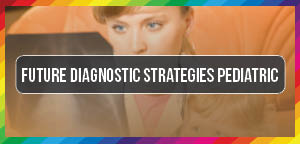
The physicians and patients involved in the early advancement of treatments. With each new procedure creating room for innovation and the robust incorporation of science related to clinical and surgical outcomes, the morbidity and mortality of pediatric diseases has continued to decline, and it is now often regarded as a chronic medical condition instead of a terminal diagnosis. However, as with any disease process, appropriate and innovative treatments rely entirely on accurate diagnoses.
- Noninvasive Imaging
- Cardioskeletal Myopathies in Children and Young Adults
- Update on multiple sclerosis in children
- Approach to the diagnosis of acute demyelination in children
- Emerging Diagnostic Strategies in Cardiac Catheterization
- Integration of Recent Genetic Findings into Pediatric Cardiology Practice
Market Analysis Report
25th Edition of International Conference on Pediatric Cardiology and Health welcome presenters, exhibitors and attendees to Madrid, Spain during April 22-23, 2019.
The global cardiology devices market size was valued to USD 15.14 billion in the year 2013. Key growth drivers of cardiology include the growing adoption rates of minimally invasive surgeries, increasing global prevalence of cardiovascular diseases and the technological advancement introduced in this field. The number of minimum invasive surgeries conducted has been increased from 669.5 thousand in 2005 to 805 thousand in the year 2014. Europe was the 2nd largest region in 2014, with the rising incidences of obesity and changing lifestyle habits like; irregularity dietary and growing number of smokers that are responsible for the growth of cardiovascular disease.
The organizing committee is preparing for an exciting and informative conference program including lectures, workshops, symposia on a wide variety of topics, poster presentations and various programs for participants from across the globe. We invite you to join us at the Pediatric Cradiology 2019, where you will be sure to have a meaningful experience with scholars from around the world. All members of the Pediatric Cradiology 2019 organizing committee look forward to meeting you in Madrid, Spain
Importance and Scope:
Pediatric Cradiology 2019 deals exclusively with heart diseases involving children. It may be surprising for the lay public and even medical fraternity that defects and deviations in the formation of heart forms the commonest congenital malformations. About 8 new-borns out of one thousand live births will have one form of cardiac defects or other, ranging from minor to very complex ones. Pediatric Cardiologists care for children with congenital or acquired cardiac and cardiovascular abnormalities. The scope of Pediatric Cardiology practice is extensive. Pediatric Cardiologists evaluate and care for fetuses, neonates, infants, children, and adolescents.
Congenital heart disease (CHD) is the type of heart disease that a baby is born with. In reality, it is a defect, or abnormality of the heart or blood vessels near the heart, and not a disease, so many people use the term “congenital heart defect”. The majority of children born today with CHD will survive and with proper treatment be able to lead a normal or near-normal life. Some kinds of CHD are mild and may not be diagnosed in infancy. Heart Murmurs is also very common disorder soon after birth.
This would automatically entail fairly bulky health care burden. However it is a paradox that even the best educated are tuned to recognizing the existence of cardiac maladies as those afflicting predominantly the adult population. Both the public and private hospitals are readily catering to adult coronary heart diseases, which, albeit being very justifiable sometimes borders on to lucrative economic equations.
Though Pediatric Cradiology 2019 has been one of the first pediatric subspecialties to be evolved in pediatrics in the west complete absence of exclusive pediatric cardiology training facilities and immense economic and infrastructural demands and above all extreme scarcity of medical personnel trained exclusively in pediatric cardiology precluded so far any significant growth of this pediatric subspecialty. However hope is not all lost as more and more private sector hospitals are now gradually developing dedicated centres to look after these children.
Pediatric Cradiology 2019 is expected to grow from nearly $23.8 billion in 2016 to roughly $55.1 billion by 2021, with a compound annual growth rate (CAGR) of 18.3% for the period of 2016-2021. Cardiovascular information systems (CVIS) were valued at nearly $3.6 billion in 2014. The market is converging to reach nearly $5.1 billion in 2019, with a compound annual growth rate (CAGR) of 7.3% from 2014 to 2019.
Why Madrid, Spain?
Madrid is the capital of Spain and the largest municipality in both the Community of Madrid and Spain as a whole. The city has almost 3.2 million inhabitants with a metropolitan area population of approximately 6.5 million. It is the third-largest city in the European Union. Madrid lies on the River Manzanares in the centre of both the country and the Community of Madrid (which comprises the city of Madrid, its conurbation and extended suburbs and villages); this community is bordered by the autonomous communities of Castile and León and Castile-La Mancha. As the capital city of Spain, seat of government, and residence of the Spanish monarch, Madrid is also the political, economic and cultural centre of the country. The Madrid urban agglomeration has the third-largest GDP in the European Union and its influences in politics, education, entertainment, environment, media, fashion, science, culture, and the arts all contribute to its status as one of the world's major global cities. Due to its economic output, high standard of living and market size, Madrid is considered the major financial centre of Southern Europe and the Iberian Peninsula. While Madrid possesses modern infrastructure, it has preserved the look and feel of many of its historic neighborhoods and streets. This city as measured by universal landings and has the world's biggest city air terminal framework measured by traveler movement.
- Open Innovation Challenges
- Poster presentations by Young Researchers
- Lectures by active practitioners
- Keynote forums by Prominent Professors, Doctors
- Global Networking sessions with 50+ Countries
- Best platform for Global business and Networking opportunities
- Novel techniques to benefit your research
- Excellent platform to showcase the latest products and formulations in Cardiac field
- Meet the editors of referred journals, Society and Association members across the Globe.
Major Societies & Associations Worldwide:
- Academic Pediatric Association
- Advanced Pediatric Emergency Medicine Assembly
- Alliance of Cardiovascular Professionals (ACVP)
- American Academy of Pediatrics
- American Heart Association (AHA)
- American Pediatric Scoiety/ Society of Pediatric Research
- American Pediatric Surgical Association
- American Pediatric Surgical Nurses Association
- American Society of Echocardiography
- American Society of Echocardiography (ASE)
- American Society of Nuclear Cardiology
- American Stroke Association
- Arizona Society of Echocardiography
- Association for European Paediatric and Congenital Cardiology
- Association of Black Cardiologists
- Association of Pediatric Cardiology
- Association of Pediatric Hematology/Oncology Nurses
- Austrian Heart Foundation
- Bear Necessities Pediatric Cancer Foundation
- Belgian Society of Cardiology
- Brazilian Society of Cardiology
- British Heart Foundation
- Canadian Association of Interventional Cardiology (CAIC)
- Canadian Cardiovascular Society (CCS)
- Canadian Pediatric Association
- CURE Childhood Cancer Association
- European Pediatric Associatio
- European Society for Cardio-Vascular Surgery
- European Society for Pediatric Dermatology
- European Society of Cardiology
- French Society of Cardiology
- German Cardiac Society (GCS)
- German Heart Foundation
- Greater Atlanta Pediatric Society
- Indian Academy of Pediatrics
- Indian Association of Pediatric Surgeons
- International Confederation of Childhood Cancer Parent Organizations
- International Pediatric Association
- International Pediatric Association Zurich
- Irish Cardiac Society
- Midwest Pediatric Cardiology Society
- Mongolian Pediatric Cardiology Society
- Pediatric & Congenital Electrophysiology Society
- Pediatric Cardiac Society of India
- Pediatric Congenital Heart Association
- Russian Cardiac Society
- Singapore National Heart Association
- The American Association of Cardiovascular and Pulmonary Rehabilitation (AACVPR)
- The Chinese Society of Cardiac Pacing and Electrophysiology
- The Paediatric Cardiac Society of South Africa: PCSSA
- United Heart Foundation
- World Health Organization
Target Audience:
- Pediatric Cardiologists
- Cardiac Surgeons
- University Professors
- Various Societies and their members
- Institutes-Medical Schools
- Academicians: University Faculties, Research Scholars, and Scientists involved.
Learn More
15th Cardiology Conference, February 19-20, 2018 Paris, France | EuroSciCon Conferences | 3rd Cariology Conference, May 07-08, 2018 Frankfurt, Germany | 12th Heart Conference, July 13-14, 2018 Toronto, Canada | Pediatrics Conferences | 14th Cardiology Conference, June 14-16, 2018 Rome, Italy | 17th Cardiology Conference | EuroSciCon | 16th Heart Conference, March 21-22, 2018 (14 Forums, 2 Days, 1 Event) New York, USA | 23rd Cardiology Conference, February 19-21, 2018 Paris, France | Heart Disease Conferences | 4th Heart Conference, September 14-15, 2018 Singapore | EuroSciCon Conferences | 27th Cardiology Conference, September 21-22, 2018 Van Couver, Canada | Pediatrics Conferences | 27th Cardiology Conference, October 22-24, 2018 Rome, Italy | World Heart Conference, May 16-17, 2018 Montreal, Canada | Cardiology Conferences | 24th Cardiology Conference, June 11-13, 2018 Barcelona, Spain | 11th World Heart Conference, August 16-17, 2018 Singapore | EuroSciCon | Heart Disease Conferences | EuroSciCon Conferences |

